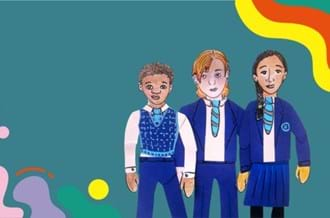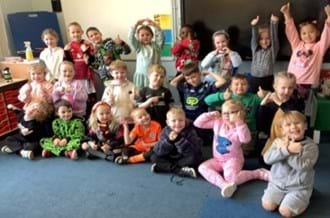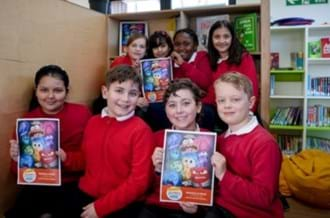How we measure our impact
How we measure our impact
We collect information about our work to evaluate our effectiveness and improve our services.
Measuring impact has been central to Place2Be’s model since we were founded in 1994.
What information do we collect?
Our mental health professionals collect a variety of information in schools, including:
- referral details
- the type of support children receive
- socio-demographic information about the pupils, parents and carers we support
- feedback in questionnaires about children's behaviour and emotional wellbeing.
Download a full list of information we collect (PDF 270KB)
What do we do with the information?
We use this information to evaluate our effectiveness in improving and developing our services.
Every year Place2Be reports on the following:
- number of pupils, parents and carers we support
- needs they have
- number of sessions we deliver
- impact of our services on pupils' wellbeing and learning, and parents' and carers' wellbeing.
Download documents about how we use information (PDF 2MB)
Benchmarking
Place2Be is s a Child Outcomes Research Consortium (CORC) member. CORC is a membership organisation that collects and uses evidence to improve children's and young people's mental health and wellbeing.
Being a CORC member means we receive annual reports that benchmark our services' outcomes against other organisations and services. These services include NHS Child and Children and Adolescent Mental Health Services (CAMHS).
According to the latest CORC report (PDF 6.7MB), pupils receiving our one-to-one counselling demonstrate a higher improvement level (in the Strengths and Difficulties Quiestonairre or SDQ) than when receiving other services.
Who are our research partners?
We thank the academic and research community for their invaluable advice, guidance and analyses. Their insights give external validation to our research and evaluation.
Our Research Advisor is Professor Tamsin Ford, Cambridge University. We have ongoing research partnerships with the following:
- University of Cambridge
- Imperial College London
- University of Exeter
- Kings College London and South London and Maudsley NHS Trust
- University of East London
- University of Edinburgh
- University of Sterling
- University of Sussex
- University of Roehampton.
Our Research Advisory Group
Members of our Research Advisory Group (RAG) meet quarterly. They provide expert advice and guidance on methodologies, analyses, ethics and dissemination of our findings.
Over 30 years’ learning from practice and evaluation
At Place2Be, we continuously evaluate our services, using evidence to develop our work in schools further. In this report, Place2Be's Chief Executive, Catherine Roche, our Head of Evaluation, Sarah Golden, and Trustee, Liz Greetham, reflect on all we've learned since we were founded in 1994.
Read our 25 years’ learning from practice and evaluation report
Place2Be NHS Quality Account
Place2Be has published its first-ever NHS Quality Account. This document demonstrates how Place2Be ensure we provide high-quality, evidence-based and clinically-effective services.
Research publications
We are delighted to share a growing catalogue of published, peer-reviewed research written by our staff, Masters and PhD students who work with independent evaluators and us. You can find out more about our research publications on the Our research projects page.
Get in touch
Would you like to find out more? You can get in touch with our team by emailing evaluation@place2be.org.uk
News & blogs

Three charities launch wellbeing video for young carers
Three charities have joined forces to launch a new video aimed at fostering the wellbeing and creativity of young carers.
Read more
“Know Yourself, Grow Yourself”: A look back at Children’s Mental Health Week 2025
During Children’s Mental Health Week 2025, we encouraged people to embrace self-awareness and explore what it means to them.
Read more
Smiley Movement visits Gwyn Jones Primary School for Place2Be’s Children’s Mental Health Week
Smiley Movement and Place2Be visited Gwyn Jones Primary School to see how they're celebrating Children's Mental Health Week.
Read more



